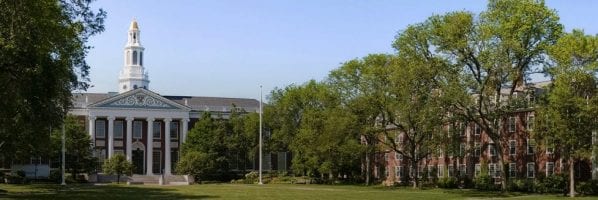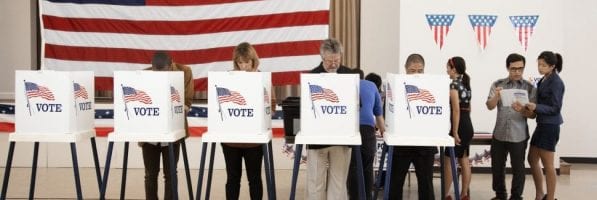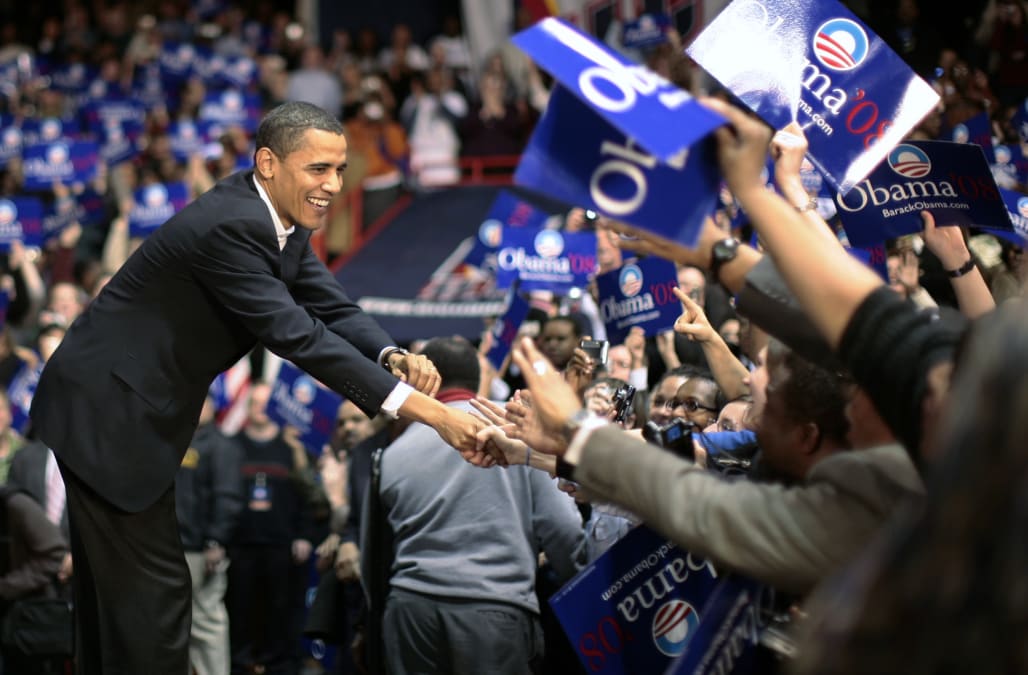Kellogg On Pharma’s Lack of Innovation, and More – Chicago News

Let’s explore some of the most interesting stories that have emerged from Chicago business schools this week.
Everyone Wants Pharmaceutical Breakthroughs. What Drives Drug Companies to Pursue Them? – Kellogg Insights
Northwestern University Kellogg School of Management Professor of Finance Dimitris Papanikolaou recently co-authored new research that illuminates why “pharmaceutical firms these days often make minor changes to existing medications instead of delivering innovative drugs.”
The study, which was co-authored with HBS’s Joshua Krieger and MIT Sloan’s Danielle Li, found that “financial frictions may be limiting innovation.”
According to the article, “The researchers found that firms were eager to work on novel drugs—under the right financial circumstances. When pharmaceutical companies got a windfall, such as a sudden increase in profits, they were more likely to spend it on developing novel drugs than on incremental improvements.”
You can read more about the trio’s research here.
Kadiani Finds Passion for Social Entrepreneurship at Gies Business – Gies College of Business News
The University of Illinois Gies College of Business recently profiled current Master of Accountancy Science student Hamed Kadiani whose social entrepreneurship journey began as part of student organization Illinois Enactus, which helped him understand his desire to see “what the root of the problem is, and then develop a solution that fixes the cause, not the symptom.”
Kadiani later served as project manager for Project Oasis, an “online center that connects immigrants to resources in Champaign-Urbana, provides access to 75 resources in six main focus areas such as healthcare and education, [and] teaches immigrants financial literacy and entrepreneurial skills.”
According to the interview, Kadiani plans to become a CPA but shared his ambitions to some day run for political office.
“I hope I made an impact on campus, but I truly believe this work made more of an impact on me. I am who I am today because of this university and Gies College of Business.”
You can read more from the Gies College of Business News profile here.
Mendoza’s Marketing Major Puts a Strong Emphasis on Digital Skills – Mendoza Ideas & News
Notre Dame Mendoza’s Marketing Department recently recruited Professor Timothy Bohling, who will teaching Digital Marketing to both undergraduate and graduates in spring 2019.
Having previously held senior executive leadership positions at Stratasys, HCL Technologies, and IBM, Bohling’s research and teaching interests are “centered both on scholarly rigor and practitioner relevance in areas of digital marketing, customer relationship management, decision modeling, customer lifetime value and innovation adoption.”

The Mendoza Marketing Department has introduced four specialized tracks that emphasize data-based strategies: marketing decision analytics, brandscaping; consulting and market development; and digital marketing.
You can read more about Bohling, his research, and the 2019 courses here.
Even Business Schools are Slamming Amazon’s HQ2 “Contest”

Less than a week after rumors spilled out about the upcoming locations of its HQ2 headquarters were confirmed, the reality of the Amazon’s move to East coast isn’t going over well.
Revolutions in Big Data, Housing, and More – Boston News

Let’s explore some of the most interesting stories that have emerged from Boston business schools this week.
So Much For The Robocalypse – Everett
BU Questrom School of Business Richard C. Shipley Professor in Management Iain M. Cockburn, an expert in innovation, was recently interviewed by the business school’s magazine, Everett, about his new paper “The Impact of Artificial Intelligence on Innovation.” His research, written alongside members of Harvard and MIT and published in the National Bureau of Economic Research, explores the long-standing potential of artificial intelligence, which can become a more all-purpose technology, rather than a niche concept or simply a tool to replace every degree of human labor.
Cockburn argues that AI, if used wisely, can replace the menial tasks associated with white collar employment, such as legal services.
“What a lot of people are sitting up and noticing is that this form of automation or replacement of human work with a computer is now percolating into areas that have been largely unaffected by previous technological revolutions,” he says. “Take legal services. It turns out that by using this technology, you can create systems that will do a lot of low-level legal work, like scanning contracts, reviewing contracts, or reviewing documents.”
A pessimistic view could say developments like this could lead to job loss, which may be true. However, in the evolution of the modern job environment, flushing out repetitive tasks that do not require critical or imaginative thinking could allow people to focus on larger issues, rather than bogging down daily routines.
“Then there’s a second question: ‘If I didn’t have to spend so much of my day doing that, what could I be doing that involves imagination, insight, critical thinking?’ So, for some people, their jobs are going to get much more interesting.”
You can read more from the Everett interview of Cockburn here, and check out the “The Impact of Artificial Intelligence on Innovation.”
Could Big Data Replace the Creative Director at the Gap? – Harvard Business Review
Assistant Professor Ayelet Israeli, “an expert in channel management, pricing, online marketing, and eCommerce” took to HBS’s Cold Call Podcast to discuss Gap CEO Art Peck’s move to eliminate its creative director and “turn to big data to predict what the big next designs are going to be.”
Since Gap is now identified as a basics brand, Israeli explains that “maybe it’s okay to sell the trend that everyone else is selling. If you’re selling something that is more fashion forward, then you’re in a bigger problem because you need someone to create this new trend and not just spot the trend that everyone else is doing.”
“The other part of [Peck’s big data] strategy is essentially to shorten production cycles that they had at the Gap. They were from traditional companies that take about 10 months, almost a year, from when they decide on something and it reaches stores. Now they shortened it to about eight to 10 weeks for most of their product categories.”
You can find the full HBS article here.
Corcoran Center to Debut Housing Case Competition – Boston College News
BC Carroll’s Corcoran Center for Real Estate and Urban Action announced a new case competition and panel discussion moderated by Boston Capital Vice President and Director of Communications David Gasson entitled, “The Future of Housing.”
The competition is “intended to hone students’ analytical skills in the field, raise awareness about issues connected to affordable housing development, and offer an in-depth look at the Low-Income Housing Tax Credit as a tool that helps both communities and developers of affordable housing.”
Corcoran Center Executive Director Neil McCullagh writes, “This competition will be a way for students to understand that housing challenges are deeply connected to every facet of our lives. It will also provide them great vision into an industry where they can do well while doing good.”
“In the competition, students will be analyzing a real housing deal. They will need to present their best understanding of the policy and their analysis of the deal outlined in the case. They will then present their solution and recommendations to the judges. The best team will walk away with the grand prize.”
Read more about the “Future of Housing” case competition here and the full Boston College News article here.
Stanford GSB Tops Remodeled Bloomberg Businessweek Ranking

The Stanford Graduate School of Business is no stranger to a top spot, but this is their first time claiming top honors on the Bloomberg Businessweek Best B-School list for U.S. programs.
Harvard Business School Grad Salaries Jump Again

Harvard Business School (HBS) is the latest top business school to publish its employment stats for its most recent graduates. What are the top takeaways? Try starting salaries exceeding $160,000.
This year’s median base pay, $140,000, is up $5,000 over last year. In addition, 65 percent of the class earned median sign-on bonuses of another $25,000. There were also other upticks, with 14 percent of students reporting median guaranteed first-year comp of $28,500, up from 13 percent and $25,000 the year before.

Within three months of graduating, 95 percent of the class reported receiving at least one job offer, and 89 percent had accepted an offer. These stats were both unchanged year over year. When there’s a gap between the percentage of students reporting offers those accepting offers—as with these latest HBS grads—it’s often considered to be the reflection of a strong job market. Under these circumstances, graduates from the very top schools can bide their time and hold out for the offer that really wows them.
Financial Services, Consulting, Tech Vie for HBS Grads
In terms of industry, three dominate when it comes to hiring the latest HBS grads. Financial services drew the largest slice of the class—29 percent—which is off from 31 percent last year but on par with the year before that.
Consulting took another quarter of the class, 25 percent, up from 23 percent last year. Technology, meanwhile, beckoned to roughly a fifth of the class—19 percent, up from 16 percent last year. Other industries saw small shifts year over year of one or two percentage points.
More Students Join Startups
HBS changed its definition of a startup this year in terms of how it tracks employment data. Startups now refer to organizations that are still private and, at most, 10-years old. By this measure, HBS grads who opted to join a startup straight out of school make up 9 percent of the class, as compared to 8 percent last year. The median starting salary for graduates going into tech is $130,000—the same as last year. Half of the startups where students landed are in the technology space, up from 45 percent a year earlier. Other top industries for startups include manufacturing (13 percent), financial services (12 percent) and consumer products (6 percent).
Another 70 students in the Class of 2018—8 percent—founded their own startups. That’s up from 64 last year. Of this year’s new ventures, 28 have a social impact focus, up from 16 last year.
HBS Class of 2019 Internships
HBS also released employment data for the summer internships pursued by students in the Class of 2019, revealing a median base salary of $7,800, down $200 year over year. More students, 89 percent, sought internships this past year, up from 87 percent the year before.
More students in this most recent class pursued internships with financial services firms, 32 percent as compared to 26 percent of the class before. Meanwhile, slightly fewer students pursued internships in technology and consulting. Tech firms drew 18 percent of the class for internships, down from 20 percent the year before. Consulting interns made up another 15 percent, down one percentage point from the year before.
This article has been edited and republished with permissions from Clear Admit.
Election Day: What Schools are Saying

It’s election day in the U.S., so for our international readers: whoops! Let’s check out some of the day’s big stories coming out of U.S. schools.
Engineered Electioneering – Kellogg Insight
“When it comes to persuading voters, the timing of a candidate’s message may be as important as the message itself,” Kellogg Insight explains.
The overall conclusion of how to approach election messaging comes from new research by Angela Y. Lee, Professor of Marketing at the Kellogg School of Management. With Concordia University of Montréal Assistant Professor Hakkyun Kim and University of Minnesota Professor Akshay R. Rao, the trio’s research finds surprising details that former U.S. President Barack Obama successfully utilized in 2008.
In short, the group’s research finds that voters are more responsive to grander, large-scale ideas the further the election is away. However, as Election Day draws closer, more concrete ideas take precedent.
“[Obama] was emphasizing abstract themes and capturing the imagination of caucus goers, while his opponents were capturing the attention of the D.C. establishment, who then spent a fair amount of time dissecting and critiquing their various plans to fix health care, get out of Iraq, and what have you,” Rao says of Obama’s 2008 campaign.

Northwestern Kellogg research finds that sweeping campaign messaging is more effective when Election Day is further away; a campaign tactic utilized heavily by Barack Obama in 2008.
The trio note that this approach goes beyond politics. In fact, they argue, the methods can be utilized successfully by marketing in other industries.
Insights from the study, Lee notes, may help consumer goods marketers develop more persuasive messages and may also help public health officials design more effective campaigns against such health threats as obesity and smoking. For example, she says, messages that urge people to lose weight or quit smoking as an immediate goal should provide concrete information on how the objective can be achieved.
You can find out more about the research here.
Even a Few Bots Can Shift Public Opinion in Big Ways – The Conversation
As the political landscape rapidly shifts in the U.S. and elsewhere, the internet bot game becomes increasingly important. In The Conversation, Tauhid Zaman, Associate Professor of Operations Management, MIT Sloan School of Management analyzes just how much of an impact these elements may have on Election Day.
His research found that bots had a much smaller presence than others may have speculated: “less than 1 percent of the active Twitter users.”
In addition, Zaman’s work, with his students net another surprising result: Twitter bots helped Hillary Clinton in 2016 more than Donald Trump.
The reason for this, Zaman concludes, is that the effectiveness is not due to the volume, but rather how much individual bots perform. The research finds that there were more Trump-supporting bots in ’16, however, Clinton bots tweeted more on average. He does, however, note that the research only gives a small window into the potential impact bots have.
It’s worth noting that our analysis looked at a relatively small number of users, especially when compared to the voting population. And it was only during a relatively short period of time around a specific event in the campaign. Therefore, they don’t suggest anything about the overall election results. But they do show the potential effect bots can have on people’s opinions.
Click here to read more about Taman’s work.
The Election Just Ahead – The Harvard Gazette
Harvard staff writer Christina Pazzanese, in her newest piece for The Harvard Gazette, details the relative uncertainty of what may happen on Election Day this year. “With polling often inaccurate in the last election, no one can confidently predict what the results will be this time, despite any evident trend lines going in,” she writes.
The focus of her piece lies on three principle elements: youth turnout; hacking; and ideology. On youth turnout, Pazzanese immediately notes that youth demographics have the worst statistical rates of turnout cycle after cycle in the U.S. With infused commitment to voter registration at the Boston university, turnout could reach a record high. However, like Pazzanese says, polling can be “often inaccurate.”
If results from a new Harvard Institute of Politics (IOP) Youth Poll are accurate, turnout among Harvard students could reach a high. Forty percent of voters age 18‒29 say they will definitely vote in the midterm, according to the findings released Oct. 29. Though poll director John Della Volpe said the organizers don’t expect that many to turn out, past trends indicate that, even accounting for the usual gap of -7.5 points between those who say they will vote and those who actually do, the figure suggests young voters will turn out in significantly greater numbers than in many years past. The only midterms in which young voters turned out at a greater rate than their typical 18‒20 percent were in 1986 and 1994, he said.
In regards to voter ideology, Pazzanese paints a more ambiguous outlook.
“Amid such rapid change, political analysts and practitioners have struggled to keep pace, especially since 2016 showed how off-track most had gotten. Many hoping to understand how voters think and behave now recognize that polling and opinion data aren’t delivering a rich enough portrait of where the electorate is moving ideologically, and why.”
Tackling ideology movement in 2018 is endearingly challenging, but left-leaning political data service Catalist, co-founded by current CEO Laura Quinn, a visiting fellow at the Ash Center for Democratic Governance and Innovation at HKS, may have a new approach. The company organized voters into less-than-traditional groups, by approaching potential voters in a different manner.
“So instead of asking questions about expected topics like the Affordable Care Act or gun ownership, which cause people to self-sort into partisan groups, Catalist asks about things that don’t signal an obvious right or left response, but gets at someone’s values. These are queries like ‘Is it morally good or bad to leave a dog out in the rain, or for a soldier to refuse to obey a potentially illegal order from commanders?'” Pazzanese writes. The results are as follows:

Quinn notes the grouping is not a total encapsulation of the electorate, however. “None of these things perfectly explains why people are the way they are. People are complicated, and they change. It’s the constellation of things that you believe that give you a sense of the person.”
You can read more about election day from The Harvard Gazette here.

